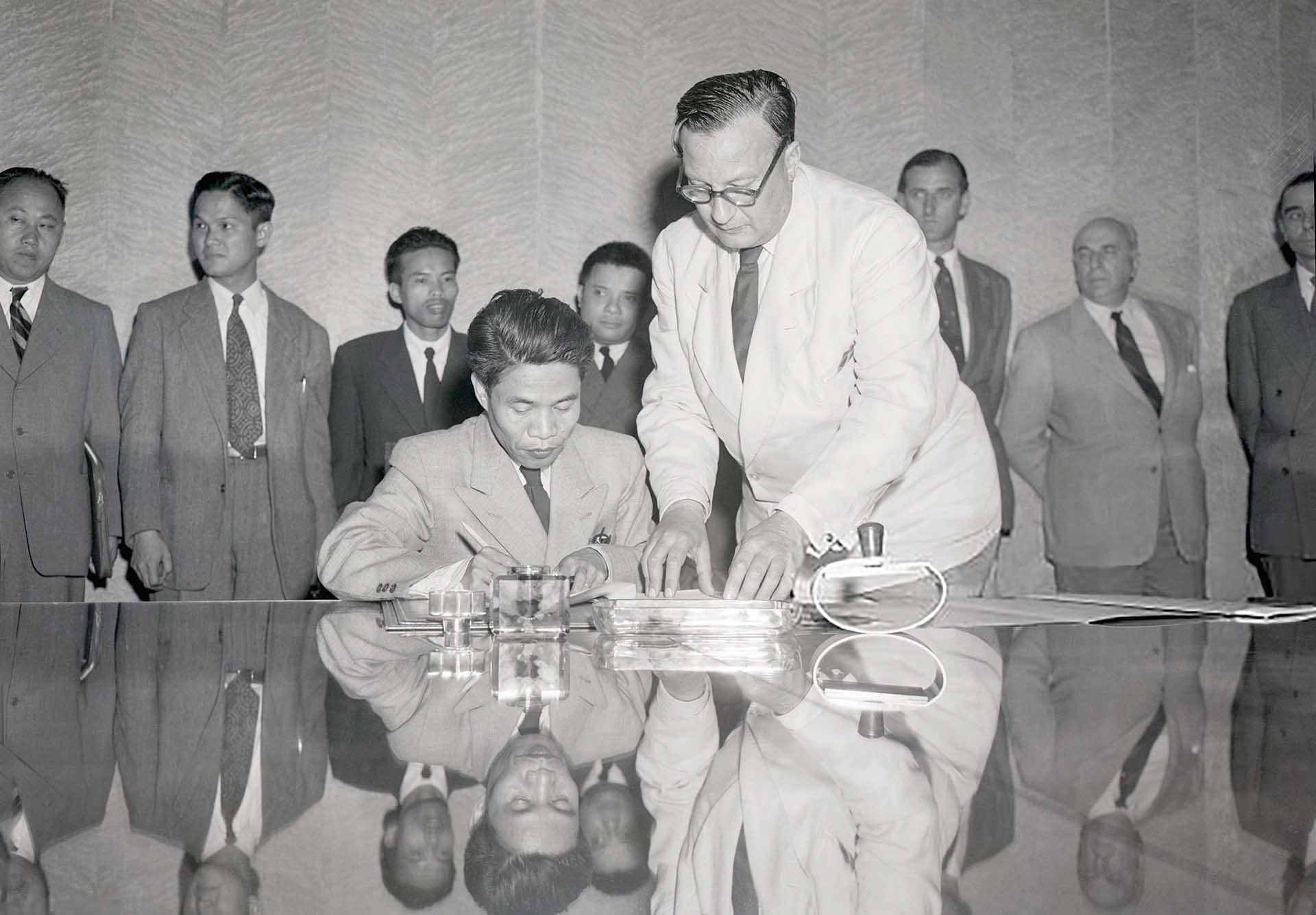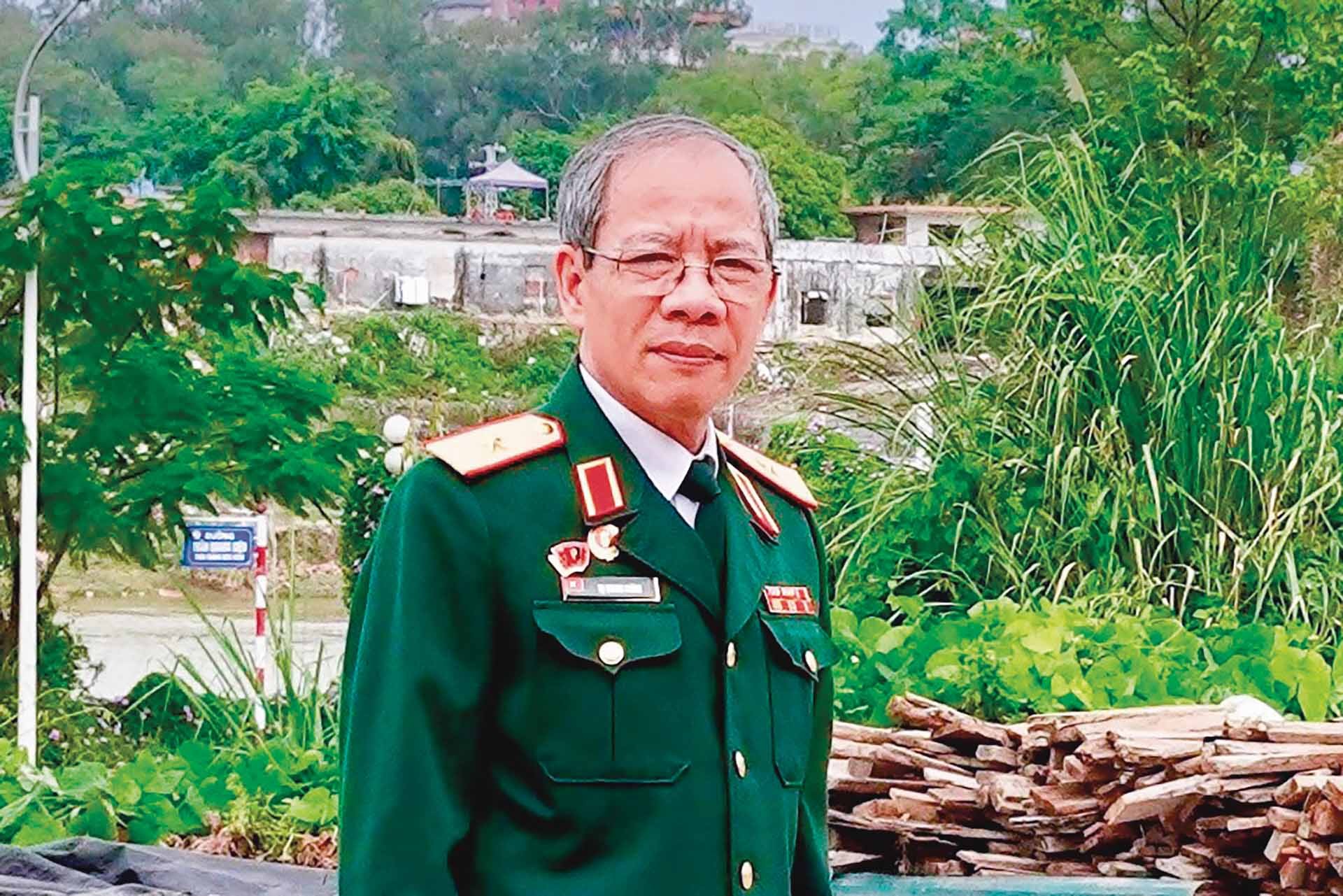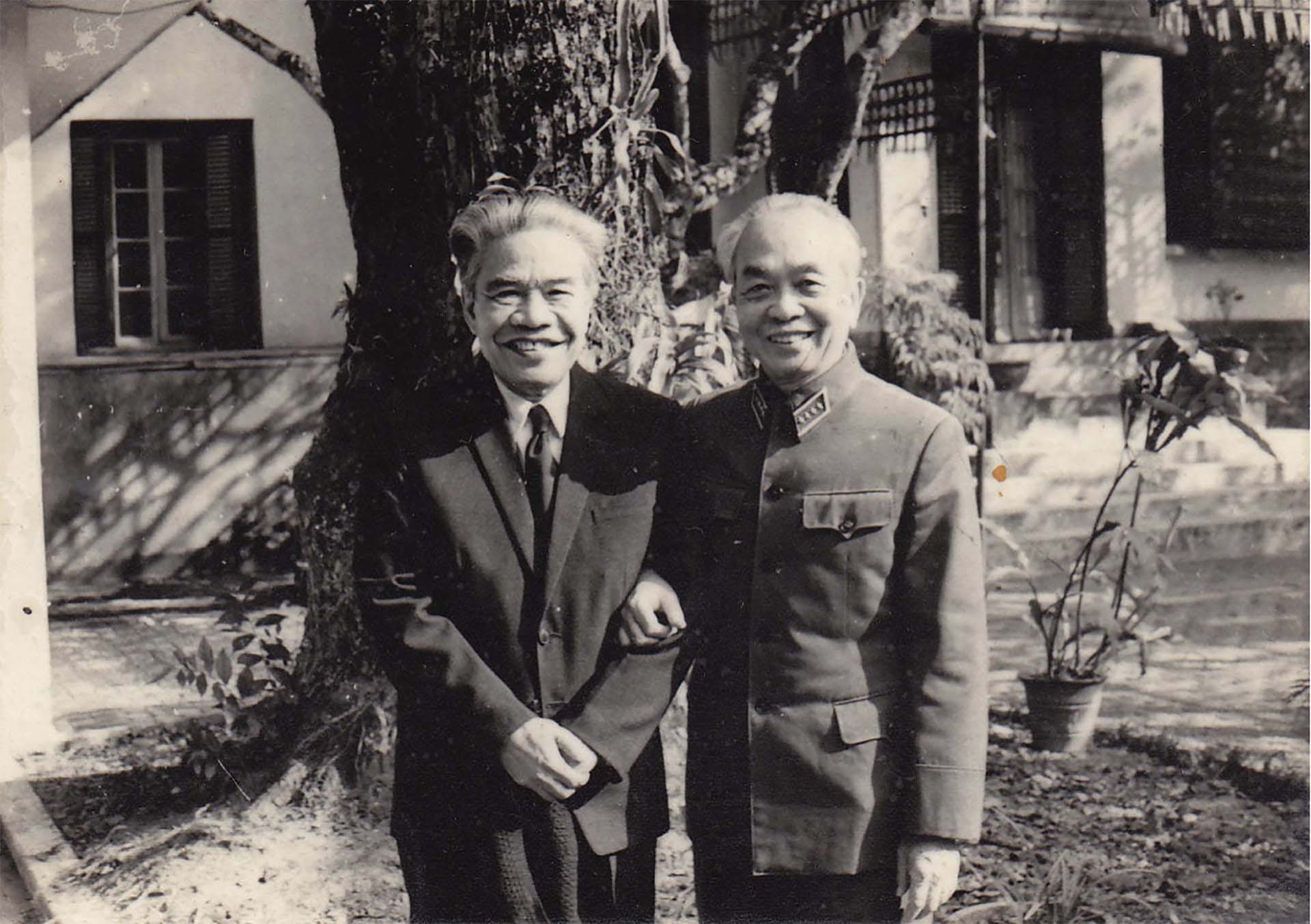
Prof. Ta Quang Buu, his diplomatic endeavours and the 1954 Geneva Accords
Latest
 |
| Deputy Minister of National Defense Ta Quang Buu signed the Geneva Agreement in 1954 on behalf of the Democratic Republic of Vietnam. (Source: VNA) |
Instead, I approach it as a son who reads, listens, watches, and learns about him and his contributions to diplomacy, including the Geneva Conference of 1954.
First, I would like to talk about how Prof. Ta Quang Buu became a diplomat.
From Uncle Ho’s Secretary on Foreign Affairs
My father was born on July 23, 1910 in Hoanh Son village, Nam Hoanh commune (now Khanh Son), Nam Dan district, Nghe An province, into a family with a tradition of “fathers teaches sons to succeed” (Phu giao tu dang khoa) and “bachelors staying home” (Cử nhân tại quán) for 11 generations, up to his grandfather’s generation.
Because his father left home to teach in Quang Nam, and then Hue, my father attended schools where the teachers were French. He had a strong sense of national identity and strived for advancement. Due to his excellent academic results, in 1929, he was able to pursue higher education in France. In his final year of study, he went to England as part of a student exchange program, which marked a significant turning point in his future career.
 |
| Major General Ta Quang Chinh. |
In 1934, he returned to Vietnam after his education abroad ended. Even though he didn’t have any diplomas, he was invited to work for the government at the time. However, he declined and instead chose to teach English (despite spending four years in France), or work as a technician in various companies. Then, the Scout Association recruited him and he became a Scout leader in Trung ky (the Central region). In 1939, he went to England to attend a training camp for scout leaders. Upon returning to Vietnam, he organized Scout training camps as the Camp leader in Indochina.
During the turmoil of the Japanese coup against the French, the Ngo brothers tried to persuade him, the Japanese fascists threatened to force him to serve them. However, he cleverly avoided their offers and then together with Mr. Phan Anh founded the Hue Frontline Youth School, which provided the Viet Minh with many excellent and mature cadres for the Vietnam People’s Army and the Democratic Republic of Vietnam (DRV) government later on.
At the end of August 1945, he traveled to Hanoi, where he was escorted by Mr. Dang Thai Mai to meet President Ho Chi Minh. Perhaps knowing all needed to know, President Ho simply pointed towards an empty desk near Vu Ky’s seat next to his office and said, “This is your place!” And so began his diplomatic career. He served as Secretary to President Ho Chi Minh in foreign relations with Britain and the United States.
Starting from September 1945, there was a Consultative Committee (acting as the government’s diplomatic agency) consisting of: Ta Quang Buu (in charge), Nguyen Đuc Thuy, Bui Lam, Tran Đinh Long, and Nguyen Van Luu as the Chief Secretary. In January 1946, he stopped working at the Ministry of Foreign Affairs when Mr. Nguyen Tuong Tam as the Minister.
Being a helping hand for and working closely with Uncle Ho, he accumulated valuable diplomatic experience. He believed that during this time, he had the opportunity to learn a lot from President Ho and even graduated from what he called the “Class of writing letters to presidents.” He learned from President Ho about diplomatic methods, interpersonal relations, maintaining secrecy, and other experiences of a professional revolutionary cadre.
In April 1946, he attended the Da Lat Conference as Deputy Minister of National Defense. The conference aimed to prepare for the visit of DRV’s National Assembly in France. This was also the first visit to France by the DRV Government, led by President Ho Chi Minh. (In the Dalat Palace Hotel, there is still a room registered under his name).
Despite the failure of the preparatory conference, President Ho Chi Minh still decided to visit France to engage in negotiations in Fontainebleau. My father joined the delegation as Deputy Minister of National Defense and its spokesperson. As the conference showed no progress, he sought permission to accompany Professor Buu Hoi to Switzerland to attend the 200th-anniversary celebration of the Swiss Association of Natural Sciences. However, this trip also included the mission of procuring weapons and relevant documents because the resistance against French colonialism could not be avoided.
Upon returning to Vietnam, he was tasked with preparing for the relocation of infrastructures and technicalities for weapon production to mountainous regions, mobilizing forces and establishing bases for the Ministry of National Defense. During the resistance, he served as Deputy Minister and later Minister of National Defense. By the end of 1948, he returned to his role as Deputy Minister of National Defense. During this period, he was involved in various foreign affairs-related activities, including advising and utilizing prisoners of war (which still fell under diplomatic responsibilities). In August 1951, he was elected as a member of the World Peace Council.
To member of the negotiaton delegation in Geneva
Related to the Geneva Conference of 1954, on March 10, 1954, our Central Committee leadership gathered officials to prepare for the conference.
At the end of March, 1954, the delegation went to China to update the situation of the world and in Southeast Asia and strategies with fraternal parties. Also, they prepared dossiers and documents for the conference. The delegation went to the Soviet Union on April 27 to further prepare for foreign affairs and logistical work. On this occasion, the delegation attended (secretly) the military parade at Red Square on International Labor Day, May 1.
 |
| Prof. Ta Quang Buu and General Vo Nguyen Giap. |
On May 4, the delegation flew to Berlin, and then changed pilots to fly to Switzerland. Although not formally invited, the Swiss government organized a grand reception just like the protocols for welcoming government leaders. Leaders from the Soviet Union and China were also present. Later, we understood that when we won at Dien Bien Phu, it was a source of pride for small countries, and Switzerland was also a small nation.
In the article “Some stories about Mr. Ta Quang Buu” by Mr. Hoang Nguyen, who was the secretary for military matters of the delegation, he wrote that: “When the Geneva Conference on Indochia was convened in 1954, he (Ta Quang Buu) participated in the negotiating delegation as military advisor, and in charge of the military delegation.
In the negotiations, military issues were the most tense and protracted, not only the negotiations on Vietnam, but also on Laos and Cambodia. Ta Quang Buu was responsible for negotiating with the French side, mainly with De Brébisson and Deltail. His assistant was Colonel Ha Van Lau, who mainly engaged in Vietnamese matters, and the remaining members were responsible for the matters of the other two countries. The negotiation content was about withdrawing foreign troops from the three countries of Indochina. In addition, no less important were the issues of the transfer of “native troops” (puppet troops loyal to France, Vietnamese, Lao, and Cambodian resistance troops) and the concentration of forces from all parties.
These two issues led to different methods: transferring the troops followed the “leopard skin” approach, meaning into small patches. The other option is to split them into two major parts in each country, which means division, which in Vietnam means division by a horizontal line along the parallel. The military negotiations were narrow and secret. The French side was very stubborn, waiting to see how the US would aid the French colonialists.
In a private meeting, with the presence of Ta Quang Buu and Ha Van Lau with De Brebisson and Deltail, and no presence of the puppet generals, Mr. Ta Quang Buu put his hand on the map of Indochina on the part of Vietnam and said: “We must have this part, and become a State, with a capital and ports”. “We are also interested in the Central region and Hue”, he added. This shows that our initial plan was to temporary divide Vietnam (while waiting for the general election to reunify the country) along the 13th parallel.
Finally, the French government of the warmonger Laniel Bidault was overthrown by the pacifists, and Pierre Mendès France became Prime Minister and Minister of Foreign Affairs. He himself went to Geneva to negotiate and cleverly went through China to influence Vietnam. Mendès France declared to the French National Assembly, taking July 20, 1954 as the last day to sign the Geneva Accords on Indochina. If an accord was not signed by that date, he would resign and let the parties fight each other without a care.
Speaking of Ta Quang Buu’s activities in Geneva, former Minister of Foreign Affairs Nguyen Dy Nien commented that he worked hard, persistently struggled to protect the principles, and interests of Vietnam, as well as of Vietnam’s fighting comrades in Laos and Cambodia.
It can be seen that in many different capacities, whether working in the Ministry of Defense, managing scientific affairs, overseeing education and training, or retired, Ta Quang Buu still engaged in foreign affairs. The seamless integration of assigned tasks and foreign affairs work helped him efficiently fulfill all assigned tasks.
He is truly a diplomat!
(*) Son of Prof. Ta Quang Buu, Major General, former Director General of the Political Department, General Department of Defense Industry, Ministry of Defense.












